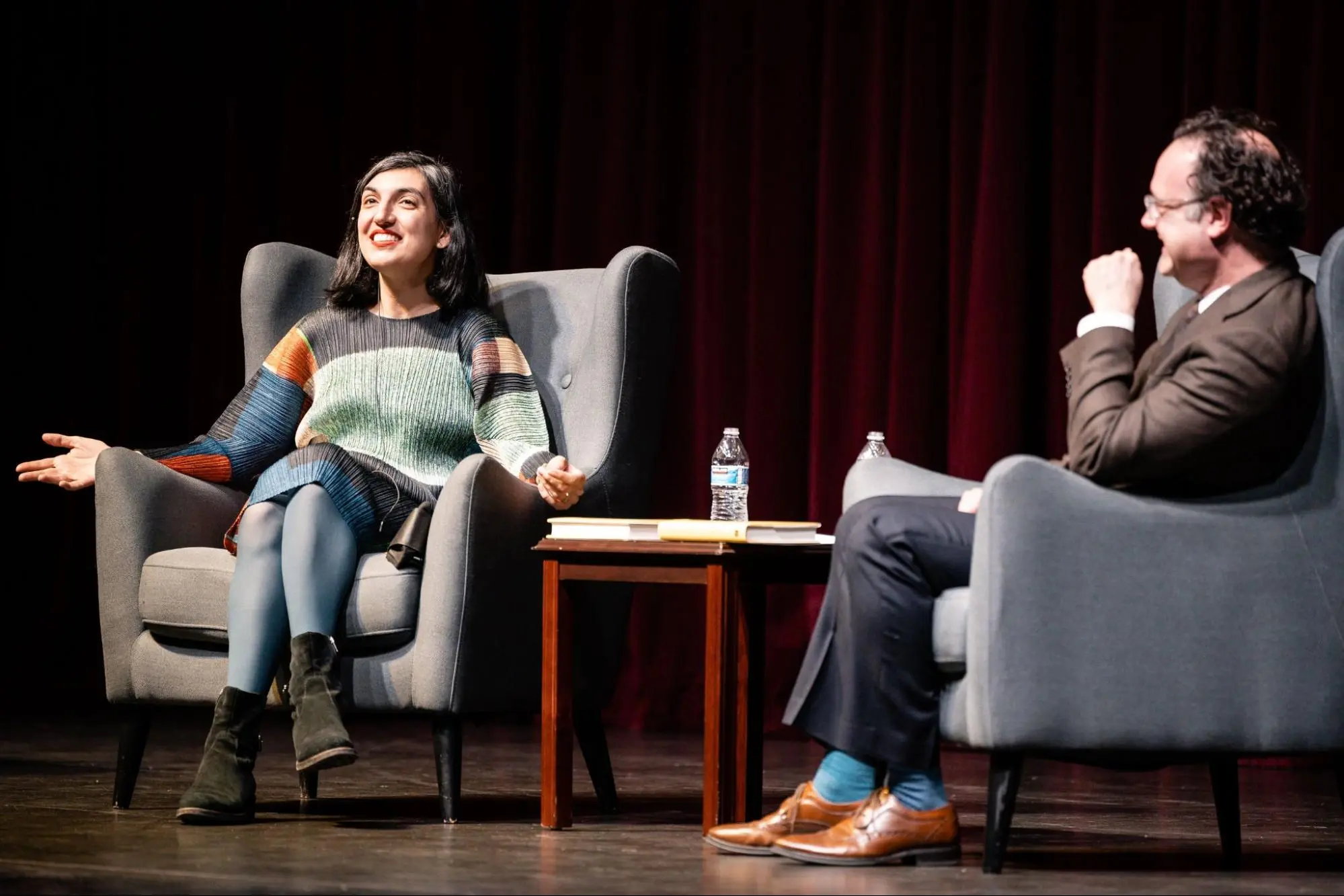“I think it’s to my parent’s credit that I had enough self-confidence.” writer Elif Batuman Ph.D. ’07 told the audience in Dinkelspiel Auditorium on Wednesday, “Whenever I thought I was bad at writing so I shouldn’t become a writer, I instead thought, ‘I’m going to become good… later.’”
Students were invited to a lively reading and engaging discussion with Elif Batuman, acclaimed Turkish-American writer, hosted by the Stanford Public Humanities Initiative and the McCoy Family Center for Ethics in Society. A Pulitzer Prize finalist and staff writer at “The New Yorker” since 2010, Batuman holds a Ph.D. in Comparative Literature from Stanford University.
The event started off with a lively reading from her novel, “Either/Or”. The novel follows the sophomore year of Harvard undergraduate Selin as she reflects on past experiences and carries on with her journey of self-discovery. Through relatability and blunt humor, Batuman made the audience laugh and consider deeper truths with her writing.
When interviewed by English Professor Mark Greif, whom she met during the time that she wrote for the literary magazine “n+1,” Batuman said that her time as a Comparative Literature Ph.D. student at Stanford University was a “fantastic experience” and “a delight.”
She explained that as an undergraduate she “didn’t know you could get a Ph.D. in literature,” something unrelated to the sciences. It was in her senior year when her thesis advisor asked if she was thinking of graduate school that it first appeared on Batuman’s radar. While completing her graduate studies, she commenced working on her first novel.
“It was then that I started publishing at ‘n+1.’ That was the first time I published anything, so it made a big difference,” Batuman told the audience. She explained how she also started writing for the New Yorker during that time.
“I did not think of myself as a journalist,” said Batuman. Once she started writing as one, however, she really enjoyed it. “People will talk for hours and tell you really interesting stuff,” said Batuman, referring to the position as a great privilege.
Batuman described that she was motivated to write “Either/Or” through her own discovery of queerness in life and reading second-wave feminism. She was recommended the essay “Compulsory Heterosexuality and Lesbian Existence” by Adrienne Rich. Batuman explained that after reading the essay, she came to the realization that “the universal great works of literature” she admired previously actually upheld problematic heteronormative and patriarchal norms.
Batuman was often asked by her readers why Selin, the protagonist in “Either/Or,” does not realize that she is queer at the end.
“Because I didn’t know,” Batuman told the audience, sharing how she did not understand her own sexuality until she turned 38 years old.
“Like all people, I was pursuing what I thought would make me free and happy, and it didn’t look like it was queerness or being lesbian. It was these relationships with men because it resonated with what I read in my favorite books,” said Batuman, in reference to Rich’s concept of compulsory heteronormative forces that hold one back from one’s own sexual realization.
“I do hope to write more essays or essay-like novels where Selin reads Adrienne Rich and figures some stuff out,” said Batuman with a smile.
